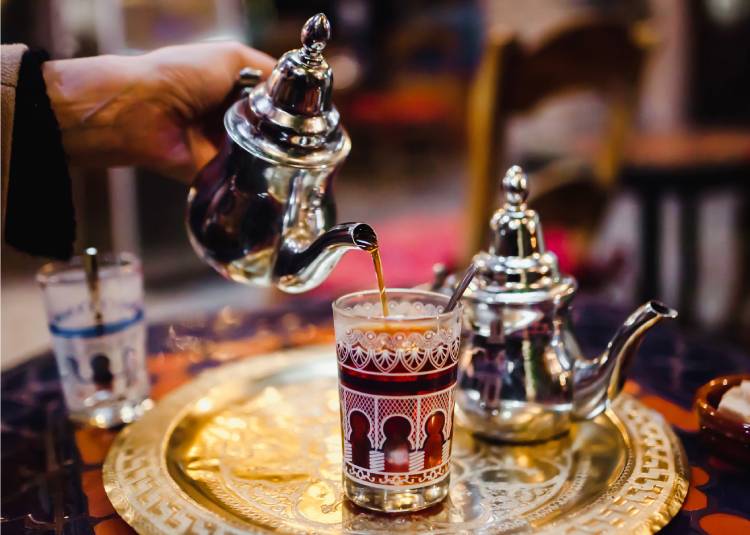Arabs are very hospitable and it is not unusual for them to get in close proximity when talking. This is because the Arabic culture and Islamic traditions are intertwined. Arabs do not eat pork, many carnivorous animals and sea animals without scales due to their religious beliefs.

Respect for elders is another important value of Arab culture that can be traced back to the Islamic faith. In Sūrat al-Isrāʼ of the Quran, hospitality is very important and this holds true for Arab Americans as well. Providing food and drink, such as tea or coffee, is typical when hosting guests.
Arab culture grew and developed through a combination of the main principles of these three religions; nevertheless, Islam has had the greatest effect on Arabic culture. Family is a top priority in Arab culture and family bonds are very strong. Most activities are family-based and decisions are usually made as a family unit.
The importance of customs and traditions
Customs and traditions are important because they help to shape our identity. They tell the story of where we came from and remind us of what is important to us. They provide us with a sense of comfort and belonging, and bring families and friends together. They also reinforce our values and beliefs.
The holiday season is a great time to celebrate our traditions. They enrich the season by allowing us to reconnect with our loved ones and appreciate the culture and history that have shaped our lives.
How customs and traditions are passed down
Customs and traditions play an important role in our lives. They are passed down from one generation to the next and help to connect us with our heritage. Each family has their own unique customs and traditions that are special to them. These traditions can be passed down in many ways, such as through stories, lectures, visuals, or discussion.
As times change, so does the way in which culture is transmitted. However, it is important to not lose sight of the importance of passing down our customs and traditions. They provide us with a sense of identity and belonging and help us to connect with our past.
The role of religion in Arab customs and traditions
There is no one Arab culture or society, but religion does play a role in Arab politics in many countries. The Arab Spring was caused by a multitude of factors (economic, political, social, cultural and religious), but its origins also lay in the dissatisfaction of the people with the status quo.
Religion is an indivisible system of life for Abu'l-Majd and it is based on social and economic contingencies and needs. Jesus is significant for both Christianity and Islam, and Muslims in addition follow the teachings of Muhammad. The line between religion and ethnicity, culture and tradition is not always clear, but religion is an important part of Arab culture.
Weddings and other celebrations
Arab Muslim weddings are lavish celebrations steeped in history and tradition. While the specific customs vary across countries in the Middle East, there are common elements that are essential to the wedding celebration. These include dancing, music, and feasting. The groom is typically lavished with gifts and treated like a king during the festivities.
The bride is also lavished with traditional oils and perfumes, and she is not seen by anyone outside of her immediate family for 40 days leading up to the wedding. A Muslim wedding is called a Nikah Ceremony and it typically lasts for several days. During this time, the families of the bride and groom celebrate their union and prepare for the life they will share together.

Comments
Post a Comment